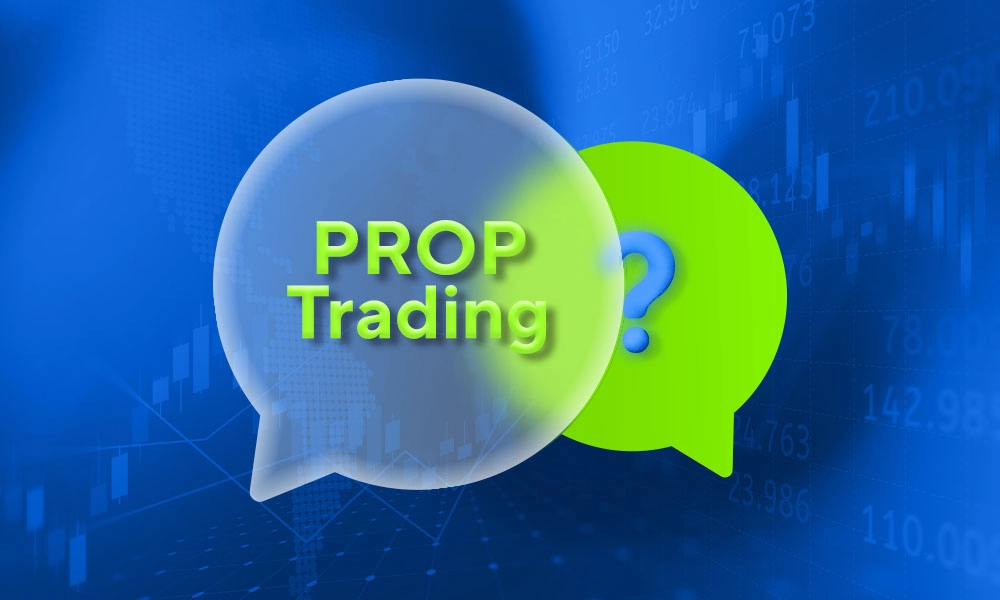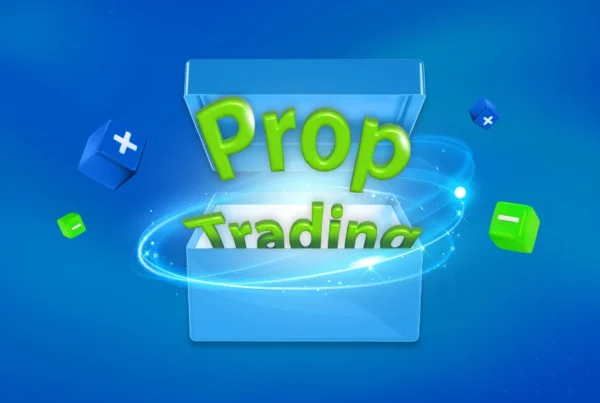
Welcome to the exciting world of prop trading! If you’re new to the concept, you might be wondering, “What is prop trading?” Fear not, as we’re here to demystify this intriguing field and provide you with a comprehensive guide to understanding prop trading firms. Whether you’re seeking financial independence or looking to expand your knowledge of online trading, this article will equip you with the essential information you need to get started.
Understanding Proprietary Trading
Proprietary trading, commonly known as prop trading, refers to the practice of trading financial instruments with a firm’s own money, as opposed to trading on behalf of clients. Prop trading firms employ traders who use the firm’s capital to generate profits through buying and selling securities, such as stocks, bonds, currencies, and derivatives.
Historically, prop trading has been a major part of investment banks’ operations. However, since the implementation of regulatory changes such as the Volcker Rule, which restricted banks’ ability to engage in proprietary trading, standalone prop trading firms have emerged.
Key Characteristics of Prop Trading Firms
Key characteristics of prop trading firms include their focus on risk management, use of sophisticated trading strategies, and access to advanced technology and market data. These firms often operate in highly competitive environments, where traders are incentivized to generate profits while minimizing risk.
Getting Started with Prop Trading
If you’re interested in pursuing a career in prop trading, there are several essential steps to take. First and foremost, you’ll need to develop a solid understanding of financial markets and trading principles. While a background in finance or economics can be helpful, many successful prop traders come from diverse educational backgrounds.
Once you’ve acquired the necessary knowledge, the next step is to choose a prop trading firm. Consider factors such as the firm’s reputation, trading platform, capital requirements, and training programs. It’s essential to find a firm that aligns with your trading style and goals. After selecting a prop trading firm, you’ll need to open a trading account and deposit funds to start trading. Most firms offer different account types based on the trader’s experience level and risk tolerance.

Strategies and Techniques in Prop Trading
Prop trading firms employ various trading strategies to generate profits in different market conditions. These strategies can be broadly categorized into two main types: technical analysis and fundamental analysis. Technical analysis involves analyzing price charts and trading patterns to identify potential trading opportunities. Common technical indicators used by prop traders include moving averages, relative strength index (RSI), and Fibonacci retracements.
On the other hand, fundamental analysis focuses on evaluating the underlying factors that influence asset prices, such as economic indicators, company earnings, and geopolitical events. Fundamental traders often conduct in-depth research and analysis to identify undervalued or overvalued assets. Regardless of the strategy employed, successful prop traders emphasize the importance of risk management and discipline. This includes setting stop-loss orders, diversifying trading positions, and adhering to a predetermined trading plan.
Overcoming Challenges and Pitfalls
While prop trading offers the potential for substantial profits, it also comes with its fair share of challenges and pitfalls. Market volatility, unexpected news events, and psychological factors can all impact a trader’s performance. One common challenge faced by beginner prop traders is emotional discipline. It’s essential to remain calm and rational, even in the face of losses or unexpected market movements. Developing a resilient mindset and sticking to your trading plan can help mitigate emotional reactions.
Another potential pitfall is the risk of over-leveraging. While leverage can amplify returns, it also increases the potential for losses. Prop traders must strike a balance between taking calculated risks and preserving capital. Learning from mistakes is an integral part of the prop trading journey. Instead of dwelling on losses, focus on analyzing your trades and identifying areas for improvement. Continuous learning and adaptation are key to long-term success in the competitive world of prop trading.
Building a Sustainable Career in Prop Trading
Prop trading offers a potentially lucrative path for those seeking financial independence and a career in the fast-paced world of online trading. However, building a sustainable career in this field requires more than just technical skills and a thirst for quick profits. It’s a marathon, not a sprint, demanding a dedicated and multi-faceted approach.
Continuous Learning and Skill Development:
The financial markets are constantly evolving, and complacency is the enemy of success. Aspiring prop traders must be committed to continuous learning. This involves staying updated on market trends, exploring new trading strategies, and familiarizing yourself with emerging technologies that can shape the future of trading. Dedicate time to studying technical analysis, risk management techniques, and fundamental analysis to gain a comprehensive understanding of market dynamics. Utilize educational resources such as online courses, webinars, and trading books to enhance your knowledge base.
Building Your Network and Seeking Mentorship:
Building a strong network within the prop trading community is an invaluable asset. Join online trading forums and participate in discussions with experienced traders. Attend industry events and conferences to connect with professionals and gain insights into the field. Consider seeking mentorship from established prop traders who can provide guidance and share their experiences. Learning from the successes and failures of others can significantly accelerate your growth as a trader and help you avoid common pitfalls.
Maintaining a Healthy Work-Life Balance:
Prop trading can be a demanding career, often requiring long hours and intense focus. While dedication is crucial, prioritizing your physical and mental well-being is equally important. Structure your trading schedule to allow for regular breaks and maintain a healthy lifestyle. Ensure adequate sleep, engage in regular exercise, and nurture your personal relationships. A healthy work-life balance fosters a sustainable and successful trading career in the long run.
Conclusion:
Remember: There’s no guaranteed “get-rich-quick” scheme in prop trading. Success hinges on a well-defined strategy, discipline, and a commitment to continuous learning and self-improvement. This concludes the exploration of prop trading. By equipping yourself with the necessary knowledge, skills, and a resilient mindset, you can unlock the potential to navigate the challenges and carve a fulfilling career path in the world of prop trading.




